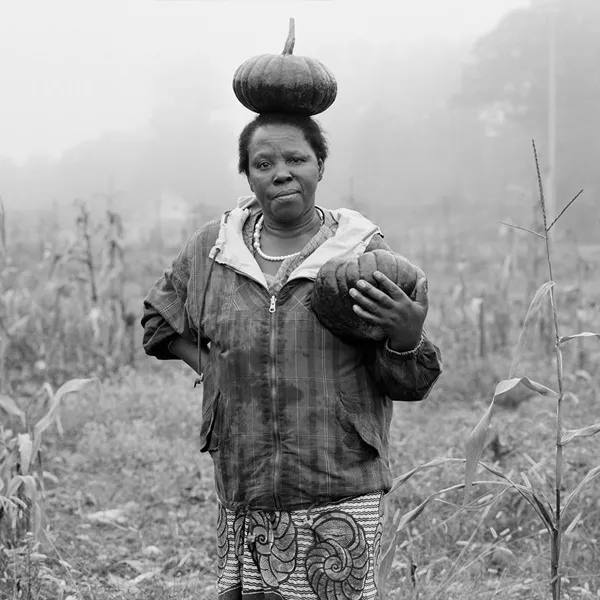In 2013, Margarita Manario embarked on a transformative chapter of her life when she joined the New American Sustainable Agriculture Program (NASAP). Born in Burundi, Margarita had fled to Tanzania in 1993, seeking refuge in a camp as a young mother. A decade later, in 2015, she arrived in America, hopeful for a new beginning.
Upon reaching the United States, Margarita faced the challenges of adapting to a new culture and language. Despite numerous attempts to secure traditional employment, her limited English-speaking skills proved to be a barrier. It was in this pursuit of livelihood that Margarita discovered NASAP, a program offering farming land, technical training, and market connections.
“I was overjoyed,” Margarita shares, reflecting on the moment she learned about the program. Her initial motive was simple – to provide healthy, culturally appropriate food for her family. Little did she know that her journey with NASAP would evolve into a passion for sustainable agriculture.
In her early days with NASAP, Margarita cultivated various crops, including main beans and coins. However, her dream extends beyond mere subsistence farming. She aspires to elevate her farming business to new heights, despite facing challenges posed by language and literacy barriers.
To overcome these obstacles, Margarita enrolled in ESL and literacy classes, significantly improving her English and writing proficiency. Yet, she admits that communicating with potential buyers and partners can still be a struggle. To navigate this, she relies on the support and supervision of the Organization for Refugee and Immigrant Success (ORIS).
ORIS combines expertise in case management and youth development with cultural and linguistic skills to assist new Americans like Margarita in achieving their goals. NASAP, a project under ORIS, serves as an incubation program, guiding new American farmers until they can independently navigate the intricacies of farming in the U.S.
Margarita’s journey in farming is a family affair, with her husband, Augustin Ndikumana, actively involved in various farming activities. Together, they find solace in the rhythm of farming in New Hampshire, where they work during the growing season and rest during the cold months.
“If I have to choose between doing a corporate job and farming, I will choose farming,” Margarita confesses. Her commitment to farming goes beyond financial considerations; it’s a connection to her roots and a way to build a community with fellow refugees who share a common language.
Margarita sells her produce at the Concord Farmers’ Market, a Saturday event that not only allows her to generate income but also provides a platform to connect with new people and enhance her English proficiency. Additionally, she participates in the Morning Star Farmers’ Market every Tuesday and Friday afternoon. Here, she engages with members of her community who seek culturally appropriate food, not commonly found in standard produce markets in the state.
Currently, Margarita owns a 1050-square-foot greenhouse, a testament to her growth and partnership with the USDA. She is poised to take a Produce Safety Alliance growers training, aligning with her commitment to continuous learning and improvement. As April or May of 2024 approaches, Margarita, along with 40 other farmers, anticipates the beginning of a new farming season, ready to contribute to the flourishing landscape of sustainable agriculture in her community. For her, the farm isn’t just a plot of land; it’s a place that feels like home, where dreams are sown and cultivated.


